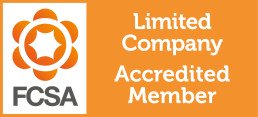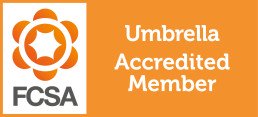Share this article

A new corporate report released by HMRC in 2022 features a frequently updated list of named tax avoidance schemes and how they have been helping temporary workers avoid paying their fair share of income tax and National Insurance Contributions. In this article, we’ve summarised the creative ways unethical tax avoidance schemes operate to help you understand the warning signs of a payroll provider that could land you in serious trouble with HMRC. We have also explained how compliant umbrella companies will operate (PAYE) – to help you pick a provider you can trust.
How are tax avoidance schemes processing the pay of temporary workers?
In HMRC’s corporate report entitled Current list of named tax avoidance schemes, promoters, enablers and suppliers, each scheme is summarised, and an explanation of how they are deemed to work is provided. We’ve collated each tax avoidance scheme below to showcase the multiple ways in which payroll can be processed unscrupulously.
Advance Deed
In this arrangement, workers must complete an advance deed – a separate document to the Contract of Employment. Essentially, the advance deed means workers get advance payments which are not subjected to tax, as well as the National Minimum Wage (NMW).
Loan Payments
Some schemes will pay workers with a combination of NMW and loans. However, the loan payments are not subjected to tax, even though these amounts are not expected to be paid back by the worker. It’s worth noting that in some scenarios, workers who have engaged with loan schemes have been required to pay back loans in the future – despite being told by the payroll provider this wouldn’t be necessary (hence providing you with the opportunity to retain more of your money).
The government’s website states:
“You may have been contacted by a third party about repaying a loan that you took out from a disguised remuneration scheme. In most cases, the request for repayment is because the original provider of the loan has sold the outstanding loans to a third party. In some cases, a loan may also be recalled by an insolvency practitioner.
Some of these third parties are now contacting users of the scheme to demand repayment of their outstanding loans — even if users believed they would not be asked to repay the loans. We are very concerned to hear about these requests for repayment of loans and understand this may be distressing for those affected.
The government is unable to intervene in a dispute between two private parties over loan contracts.”
Grants
Grant tax avoidance schemes will pay workers by combining NMW with grants which do not need to be paid back (and should be subjected to tax but are not).
Basic Tax-Free Payments
While some tax avoidance schemes use outlandish and complex methods to try and retain pay retention – some are more black and white. It’s common for some schemes to simply pay workers with a combination of NMW and a generic second payment that isn’t tax – thus inflating workers’ pay retention.
Check the corporate report to see the named and shamed tax avoidance schemes
HMRC has started to name tax avoidance schemes to help contingent workers make better decisions when choosing an umbrella company. We recommend you check the list frequently because they are regularly updating it.
How should a compliant umbrella company process your payroll?
All compliant umbrella companies in the UK will process your payroll in the same way – by following HMRC’s tax system Pay As You Earn (PAYE).
When you join an umbrella, you’ll be required to provide several pieces of personal information, including name, address, bank details, NI number, date of birth and assignment details. You’ll also need to send your umbrella proof of identity and Right to Work in the UK (RTW). Once you’ve completed these steps, you will receive a Contract of Employment – a thorough document explaining everything you need to know about how the umbrella operates. You must read this and only sign and return it if you’re fully satisfied with its content.
Your umbrella company will receive your assignment rate (gross rate of pay) from your agency or directly from the end-hirer (your client). They will then make all the necessary deductions, which will include the umbrella’s margin, income tax, Employee NI and the employment costs (which consist of the Apprenticeship Levy and Employer’s NI). The umbrella may also deduct student loan repayments and pension contributions, depending on your circumstances. Once all the deductions have been made, the umbrella company will send you your net salary, supported with a payslip.
The only factor that might slightly alter your pay retention between reliable umbrellas is the margin they deduct. For example, if you identify three umbrella companies you like and they all have a £25 per week margin – you should, in theory, retain the same pay with each – to the penny.
For more information about joining an umbrella company, please read our article: Onboarding Q&A: Everything you need to know before registering with an umbrella company.
Churchill Knight Umbrella
Churchill Knight Umbrella is the first-choice payroll provider for thousands of contractors and freelancers, and we’re delighted to be partnered with hundreds of UK-based staffing agencies. We take compliance extremely seriously and are happy to be an accredited member of the FCSA (Freelancer and Contractor Services Association) – the UK’s leading professional body committed to ensuring the supply chain of temporary workers is compliant with UK Tax law. Obtaining FCSA accreditation required us to undergo a series of audits and assessments to ensure we operate compliantly and in the best interests of our umbrella employees. We’re delighted to have passed these and been awarded FCSA membership.
If you’re interested in finding out more about our industry-leading umbrella company, or you would like to request an umbrella take-home pay calculation, please get in touch with our friendly Sales Consultants today on 01707 871622 or send us a message here.
About Churchill Knight
Founded by an IT Contractor in 1998, Churchill Knight has become one of the most respected contractor accountants in the UK. We’ve helped over 20,000 contractors with their accountancy requirements. As well as our accountancy services, we also have an industry-leading PAYE umbrella company and dedicated in-house personal tax department. Whichever service you choose, you can move forward with complete peace of mind. We are proud of the reputation we’ve built over the years, and our FCSA accreditation proves how committed we are to compliance within our sector. Keep reading…


We're regularly adding new, helpful content
The Churchill Knight blog is regularly updated with helpful content for contractors and freelancers – especially articles that answer the most frequently asked questions about umbrella companies! Please pop back shortly to see the latest articles written by Andrew Trodden (Marketing Manager) and Clare Denison (Marketing Executive).
